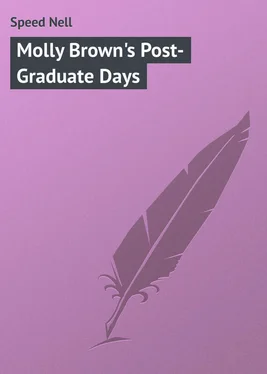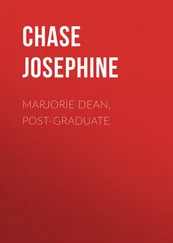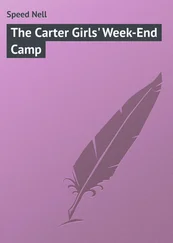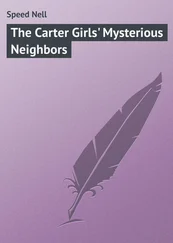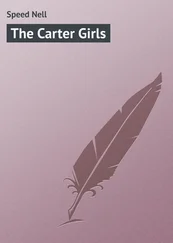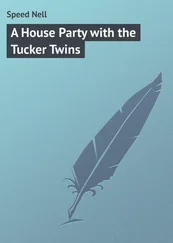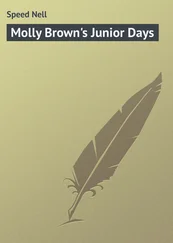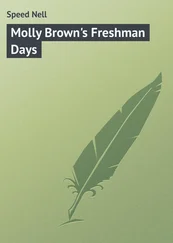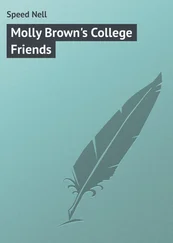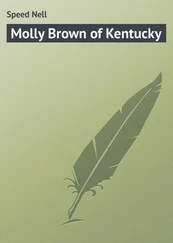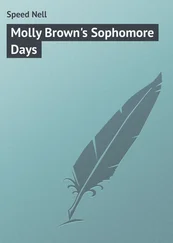Nell Speed - Molly Brown's Post-Graduate Days
Здесь есть возможность читать онлайн «Nell Speed - Molly Brown's Post-Graduate Days» — ознакомительный отрывок электронной книги совершенно бесплатно, а после прочтения отрывка купить полную версию. В некоторых случаях можно слушать аудио, скачать через торрент в формате fb2 и присутствует краткое содержание. Издательство: Иностранный паблик, Жанр: foreign_prose, foreign_children, на английском языке. Описание произведения, (предисловие) а так же отзывы посетителей доступны на портале библиотеки ЛибКат.
- Название:Molly Brown's Post-Graduate Days
- Автор:
- Издательство:Иностранный паблик
- Жанр:
- Год:неизвестен
- ISBN:нет данных
- Рейтинг книги:3 / 5. Голосов: 1
-
Избранное:Добавить в избранное
- Отзывы:
-
Ваша оценка:
- 60
- 1
- 2
- 3
- 4
- 5
Molly Brown's Post-Graduate Days: краткое содержание, описание и аннотация
Предлагаем к чтению аннотацию, описание, краткое содержание или предисловие (зависит от того, что написал сам автор книги «Molly Brown's Post-Graduate Days»). Если вы не нашли необходимую информацию о книге — напишите в комментариях, мы постараемся отыскать её.
Molly Brown's Post-Graduate Days — читать онлайн ознакомительный отрывок
Ниже представлен текст книги, разбитый по страницам. Система сохранения места последней прочитанной страницы, позволяет с удобством читать онлайн бесплатно книгу «Molly Brown's Post-Graduate Days», без необходимости каждый раз заново искать на чём Вы остановились. Поставьте закладку, и сможете в любой момент перейти на страницу, на которой закончили чтение.
Интервал:
Закладка:
“I can count at least ninety-eight persons who are sure to come,” said Mrs. Brown, “all of them kin or close friends, and how they are to get in this room and leave an aisle for the wedding party, goodness only knows; and if the hall and porch are full, it will be very uncomfortable.”
Judy and Kent were pretending to be the bride and groom, grave Sue was the minister, John and Paul, flower girls, and Molly, boss. Mildred and Crittenden were not allowed to practice for their own wedding, as Miss Lizzie said it was bad luck, and Miss Lizzie was authority on all such subjects. So the two most interested were seated at the piano, pretending to be the musicians doing “Chopsticks” to wedding march time.
“Crit, I believe you will have to give Milly up. There is no way to have a decently stylish wedding in this joint,” said Paul. “Let’s stop the festive preparations and all of us go to Jeffersonville. It would make a grand story for my paper.”
Judy had been very quiet for some minutes and her face wore what Molly called her “flashed upon that inward eye” expression. Suddenly she cried, “I have it. Come on and let’s get married out of doors.” She seized Kent by the hand and dragged him out on the lawn, the rest following in a daze.
“Look at that natural place to be married in: the guests under the trees; room for everybody; a living altar of shrubs and flowers at the end of the tan-bark walk; minister entering from the grass walk on one side and Mr. Rutledge with his best man from the other; down the steps Mildred on Ernest’s arm, followed by Molly and Sue. Can’t you see them coming up the tan-bark walk? Just at sunset, the people in their light festive clothes, your mother beautiful in her black crêpe de Chine, with Paul and John and Kent standing by her making a dark note near the bride? Oh, why, oh, why did they not have holly-hocks up this garden walk instead of by the chicken yard fence? It would have made the color scheme simply perfect.”
Judy paused for breath. She had carried the crowd by her eloquence, and so perfectly had she visualized the whole thing that each one was able to see what she meant, and absolute and unanimous approval was given the scheme. Kent, with his artistic eye, was in for it heart and soul, and began to plan Japanese lanterns to be lit after the ceremony in the rustic summer-house beyond, where supper was to be served, observing that their color might somewhat take the place of the holly-hocks that were in the wrong place.
“Just where did you want the holly-hocks, Miss Judy? We might do better another year if we knew just what your orders were.”
“On both sides of the tan-bark walk, just beyond the intersection of the grass walk. Can’t you see how fine and stately they would look, and what a wonderful mass of color?”
“Right, as usual. What an architect you would make! That power of ‘seein’ things’ is what an architect needs above everything. Any one can learn to make it, but it is the one who sees it who is the great man or woman, as in the present case.”
Things had been humming so since Molly’s return that she had had no time for the confidential talk with her mother that both were hungering for. The Browns always had much company, but at this season there seemed to be no end to the comings and goings of guests, principally comings: many parting calls being paid to Mildred by old and young; Molly’s friends hastening to greet her after the eight months’ absence at college; a steady following of young men calling on Sue, in spite of her suspected preference for Cyrus Clay, the nephew of Aunt Sarah Clay’s deceased husband, and the one Aunt Mary objected to because of his living up such a muddy lane. Presents were pouring in for the bride; notes had to be answered; trains to be met; express packages to be fetched from the station; and poor little Mrs. Woodsmall kept in a state of constant misery over the Parcel Post business Bud was doing, and she with “never a chanst to take so much as a peep.”
Molly, ever mindful of others, hitched up President one off day and drove over to the postoffice and got the poor thing. Then she let her see every single present; and feel the weight of every bit of silver; and hunt for the price mark on the bottom of the cut-glass; read all the cards; and even go into the sewing-room where Miss Lizzie Monday proudly showed her the clothes, and let her take a good look at the wedding dress all folded up in its box. But when Mrs. Woodsmall began to pick at the hem where her sharp eyes discovered an end of the stiff sandy hair, sewed in to bring a “soon husband,” Miss Lizzie snapped on the top and told her sharply to stop rumpling up Miss Milly’s dress.
The night after Judy had solved the problem of where the wedding was to be, Molly felt that she must have her talk with her mother. Judy was tired and a little distrait, visualizing again no doubt; seeing the wedding in her mind’s eye; regretting the holly-hocks; wondering if she really did have the power that Kent attributed to her, that of a creative artist. If she did have it, what should she do about it? Was it not up to her to make something of herself if she had such a gift? Was she willing to work, as work she would have to, if she really expected to do something? At the back of it all was the thought, “Would Kent like her so much if she should turn out to be a woman with a purpose?” Judy was obliged to confess to herself as she dozed off that what Kent Brown thought of her made a good deal of difference to her, more than she had thought that any man’s opinion could make.
Molly waited until she thought Judy was asleep and then crept softly downstairs to her mother’s room. Mrs. Brown was awake and glad indeed to see her “old red head,” as she sometimes lovingly called Molly, coming to have a good talk. It is funny what a difference it makes who calls one a red head. Now that horrid girl at college, Adele Windsor, had enraged Molly into forgetting what Aunt Mary called her “raisin’” by calling her a red head, and yet when mother called her the same thing it sounded like sweet music in her ears.
Mother had some things to tell Molly, too. She did not altogether approve of John’s inamorata, the girl visiting Aunt Clay. It was a case of Dr. Fell with her.
“I do not love thee, Dr. Fell.
The reason why I cannot tell;
But this I know, and know full well,
I do not love thee, Dr. Fell.”
Then she did think if Sue intended to marry Cyrus Clay she should not lead on the other two young men, who seemed quite serious in their attentions. She hated to say anything, because Sue was so dignified.
“Now if it were you or Mildred, I would speak out, but you know Sue always did scare me a little, Molly.”
And Molly and her mother giggled like school girls over this confession. Sue was very handsome and lovely and good, but she was certainly a little superior, and Mrs. Brown found that, if she had any talking over of things to do, she wanted either Molly or Mildred, who were “not too pure or good for human nature’s daily food.”
Molly was eager to know what her mother thought of Judy, and was delighted at her frank liking for her friend. Then Molly had to tell her mother of her hopes and ambitions; of her triumphs and disappointments at college; and of her growing friendship for Jimmy Lufton, the clever young journalist from New York who was trying to persuade Molly to go into newspaper work; of his liking for her that she did not want to ripen into anything more serious, but his last letters were certainly growing more and more fervent.
“Don’t flirt, little girl, don’t flirt. It would not be my Molly if she deceived any one. Have all the fun you can and as many friends as possible and enjoy life while you are young. You are sure to be popular with every one, men and women, boys and girls, but don’t be a coquette.”
Читать дальшеИнтервал:
Закладка:
Похожие книги на «Molly Brown's Post-Graduate Days»
Представляем Вашему вниманию похожие книги на «Molly Brown's Post-Graduate Days» списком для выбора. Мы отобрали схожую по названию и смыслу литературу в надежде предоставить читателям больше вариантов отыскать новые, интересные, ещё непрочитанные произведения.
Обсуждение, отзывы о книге «Molly Brown's Post-Graduate Days» и просто собственные мнения читателей. Оставьте ваши комментарии, напишите, что Вы думаете о произведении, его смысле или главных героях. Укажите что конкретно понравилось, а что нет, и почему Вы так считаете.
